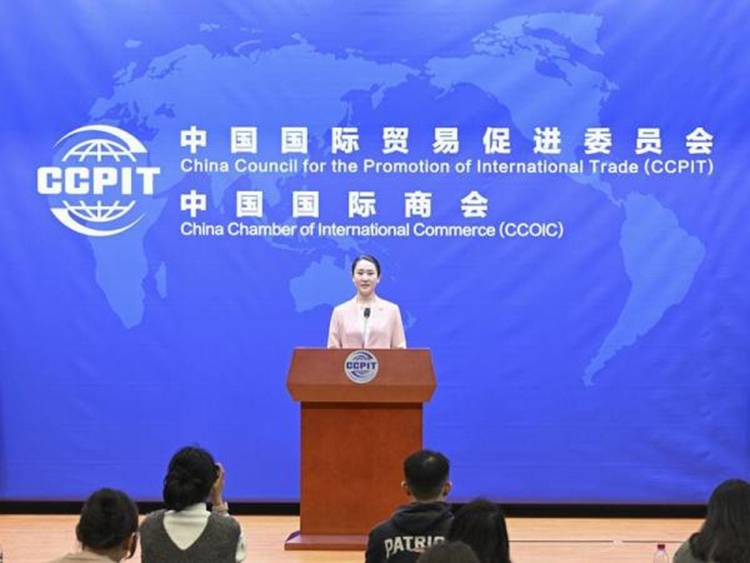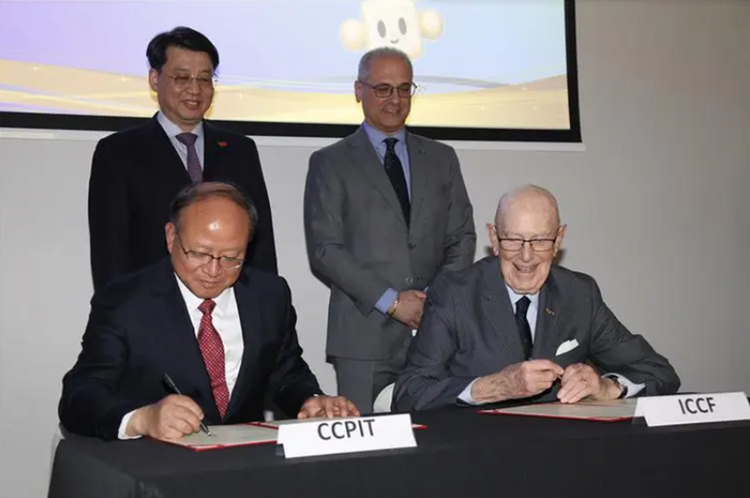As a European economic powerhouse, Italy has world-leading competitive advantages in the fields of manufacturing, fashion design, cultural creativity and food processing. In order to help Chinese enterprises understand the latest economic and trade policies, laws and regulations of Italy in a timely manner, and smoothly explore the Italian market, on October 23rd, the CCPIT Representative Office in Italy and Ernst & Young Italy's China Affairs Department cooperated to hold the “Basic Knowledge Chinese Enterprises Need to Know to Enter Italy (Phase I)” training activity, inviting experts to provide information on the following topics Experts were invited to explain the economic, trade and legal issues related to investing in Italy and M&A in Italy.
“Mergers and acquisitions are one of the tools used by foreign investors to establish a presence in Italy through the acquisition of existing companies or business lines.” Wang Zhuoqun, manager of Ernst & Young Italy's China Overseas Investment Business Department, introduced that at present, the industrial sectors in which Chinese enterprises invest in Italy are mainly distributed in finance, communications, high-end manufacturing, R&D and design. Successful cases include Bright Group's acquisition of Italy's SALOV olive oil company, with the help of SALOV's brand Fillippo Berio (Fillippo Berio) in Italy and even the dominant position in the British and American markets, to quickly open up the European and American markets; Zoomlion acquisition of Italy's CIFA and the establishment of factories, tower cranes, truck cranes, aerial working platforms and forklift trucks in the European market for localized production, and to provide local customers with the most suitable products. Localized production, and provide a full range of services for local customers, further improving the global layout of Zoomlion.

In addition to opportunities, Chinese enterprises entering Italy often face challenges in terms of Golden Power Act restrictions, tax and financial risks, compliance costs, labor law protection and other aspects.
Wang Jianna, assistant representative of CCPIT representative office in Italy, introduced that in 2012, the Italian government introduced the concept of Golden Power, which grants the government special regulatory powers to protect national defense and national security, 5G broadband electronic communication services, energy, transportation and telecommunications, and other strategic sectors from speculative investments, and to intervene in the acquisition of relevant Italian assets by foreign capital. In the years that followed, the scope of application of the Golden Power Act was expanded. Regulation is also not limited to pre-transaction, but also includes retrospective risks after the acquisition is completed. Italian Chinese companies such as Huawei and ZTE have generally said that the act has hindered their participation in the construction of the 5G communications sector in Italy.
“As Italy's tax policy is getting tougher and tougher, enterprises' lack of understanding of tax laws and policies may lead to an unusually heavy tax burden after mergers and acquisitions.” Wang Jianna introduced that Italy's fiscal laws and regulations are changing fast and the standards are high, and enterprises' financial accounting standards are not updated in a timely manner or bookkeeping errors lead to tax problems, which will result in fines after verification by the tax bureau. Fire regulations updated year by year, fewer companies can meet the Italian fire qualification requirements, the relevant departments will also produce the corresponding warehouse hardware facilities to verify the transformation costs and reporting fees. Furthermore, in terms of employee rights, in addition to legislation at the national and regional levels, trade unions, national collective bargaining agreements and other collective bargaining agreements are also highly valued. Under Italian law, employers need to have a just and reasonable cause to terminate an individual's employment relationship, and employers with specific staffing requirements who intend to terminate the employment of more than five employees within a certain period of time are required to implement a special procedure involving labor unions. Considering the above factors, Chinese enterprises planning to enter the Italian market must have a thorough understanding of the complex local laws and regulations, pay attention to policy changes in a timely manner, minimize relevant legal risks and reduce unnecessary economic losses.

For Chinese enterprises concerned about intellectual property and technology, Wang Jianna said that if the enterprise did not investigate clearly, the contract agreement is not complete will lead to a series of potential risks, so that after the merger and acquisition of competitive industries hollowed out and led to the failure of the merger and acquisition. Wang Jianna suggested that if enterprises intend to carry out mergers and acquisitions should pay attention to the role of professional organizations, with the help of law firms and accounting firms to help do a good job before the investment and mergers and acquisitions due diligence, to find the entry point of investment in Italy, scientific research and judgment of the current situation of the investment industry chain, so as to reasonably control and manage the cost of mergers and acquisitions around the core business of the enterprise to produce synergistic effects, to avoid the other hidden cost traps.

